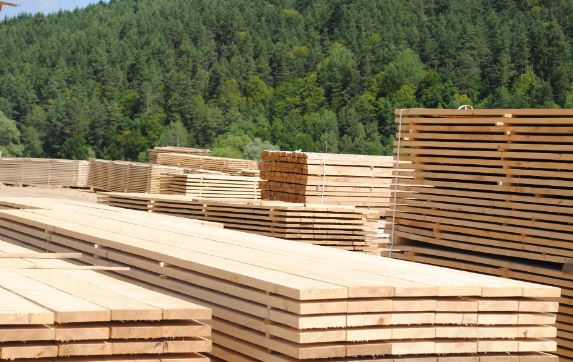
The global lumber market has faced significant challenges over
the past two years. From declining house construction to slowing
remodeling activities and reduced consumer goods consumption,
demand for softwood lumber has steadily dropped across key
regions.
Yet, amidst these tough times, one surprising development has
caught the attention of industry professionals¡ªthe Global Sawlog
Price Index (GSPI) has been on the rise. For business leaders in
forestry, lumber, and related sectors, understanding these
trends is crucial to navigating this shifting landscape. Sawlog
costs account for 60-70% of the production costs for lumber
producers, making it the key cost factor when tracking a
region¡¯s competitiveness.
Why Are Sawlog Prices Rising Despite Lower Demand for
Lumber?
Typically, a drop in lumber demand causes a similar decline in
sawlog prices. However, the GSPI has defied expectations,
climbing nearly 7% year-over-year by the third quarter of 2024
and 18% above its 30-year average. What¡¯s behind this
counterintuitive trend, and what does it mean for regional
markets?
Contrasting Trends in Global Regions
A closer look reveals significant regional differences in
sawlog pricing. Some regions are seeing record highs, while
others face sharp declines. Here are some of the most noteworthy
trends:
-
Northern and Central Europe: Log
prices have soared in Nordic regions, reaching their highest
levels in over a decade. With these gains, sawmills in the
region are facing shrinking profit margins. Why? The rising
cost of raw materials has outpaced lumber prices, adding
pressure on operations.
-
North America: The
story is very different in North America. British Columbia
is contending with significant challenges that have reduced
the region¡¯s prominence in the sawmill industry. Production
in 2024 is estimated to be almost half of what it was a
decade ago due to timber shortages, high production costs,
and other operational hurdles. Meanwhile, US Southern
sawlogs have reached 30-year price lows. This decrease could
attract new investment in the region¡¯s mills over the next
couple of years.
-
China and MENA Regions: Chinese
lumber imports have seen a 7% year-on-year decline in the
first ten months of 2024. Similarly, Middle East and North
African countries reported a 4% drop in their total lumber
imports over nine months. These weakening markets further
emphasize the regional disparity in lumber demand and
pricing.
Implications for Forestry and Lumber
Professionals
These trends present both challenges and opportunities for
professionals in the forestry and lumber sectors. For businesses
in Northern Europe, controlling production costs has become more
important than ever in adapting to rising raw material expenses.
On the other hand, regions like the US South could see new
growth, as the combination of low sawlog prices and competitive
operating costs may attract fresh investments in 2025 and
beyond.
Meanwhile, the shrinking sawmill sector in British Columbia
serves as a cautionary tale of how fluctuating demand,
regulatory factors, and global competition can reshape an
industry. Companies must stay adaptable while keeping a close
eye on trade dynamics and evolving market conditions.
For international players, the disparity in sawlog pricing
highlights the importance of geographic diversification. Having
operations or partnerships across different global regions can
provide a hedge against market volatility. Additionally, with
European lumber exports to the US possibly expanding, there may
be emerging opportunities for firms looking to enter or grow in
overseas markets.
Stay Ahead with the Latest Insights
The global sawlog market is undergoing profound changes that
could reshape industry profitability and growth opportunities.
For professionals navigating this complex and evolving
environment, reliable and timely insights are essential. Staying
informed can help you make data-driven decisions that align with
both short-term challenges and long-term goals.
To help you understand these shifts in greater detail and
explore actionable insights,
download the full report "The Global Sawlog Price Index Has Gone
up the Past Year Despite Weak Lumber Markets Worldwide" now
to uncover in-depth analysis, pricing data, and market forecasts
that can help guide your business strategy.
¡¡